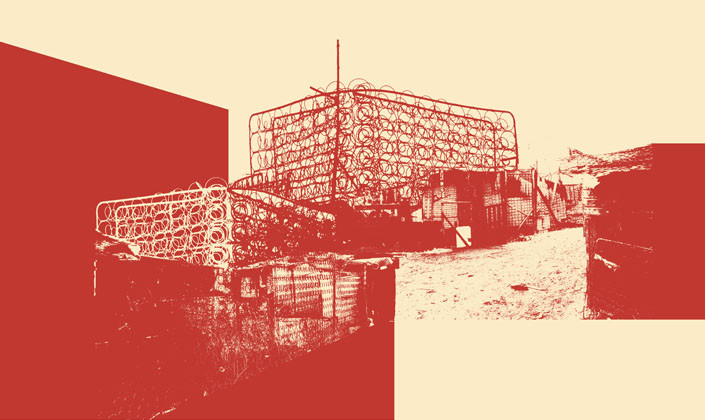Sabine Bitter / Helmut Weber
24 Mar - 18 Jun 2012
SABINE BITTER / HELMUT WEBER
24 March - 18 June, 2012
Exploring the importance of architecture in shaping our social and urban imaginations, Sabine Bitter / Helmut Weber's gallery and public installations demonstrate the values that underlie the production of architecture and the interests that they represent.
Autogestion, or Henri Lefebvre in New Belgrade
The work of Sabine Bitter / Helmut Weber comprises the first of two artist interventions in the Dissenting Histories: 25 Years of The Power Plant exhibition, offering insight into the critical role of architecture in public space and in turn interrogates the very notion of public itself. Exploring the importance of architecture in shaping our social and urban imaginations, their gallery and public installations demonstrate the values that underlie the production of architecture and the interests that they represent.
Highlighting questions of agency and urban space, a grid of five photo-collages installed within the Markus Miessen-designed archive space articulates the situation of New Belgrade, former Yugoslavia’s capital city, and the postulations of Marxist urbanist Henri Lefebvre. The images also function as interchangeable covers for the eponymous artist book that will also be on display. This work, within this space, offers a critique of the relationship of architecture, the archive and urban change with social processes and economic forces.
24 March - 18 June, 2012
Exploring the importance of architecture in shaping our social and urban imaginations, Sabine Bitter / Helmut Weber's gallery and public installations demonstrate the values that underlie the production of architecture and the interests that they represent.
Autogestion, or Henri Lefebvre in New Belgrade
The work of Sabine Bitter / Helmut Weber comprises the first of two artist interventions in the Dissenting Histories: 25 Years of The Power Plant exhibition, offering insight into the critical role of architecture in public space and in turn interrogates the very notion of public itself. Exploring the importance of architecture in shaping our social and urban imaginations, their gallery and public installations demonstrate the values that underlie the production of architecture and the interests that they represent.
Highlighting questions of agency and urban space, a grid of five photo-collages installed within the Markus Miessen-designed archive space articulates the situation of New Belgrade, former Yugoslavia’s capital city, and the postulations of Marxist urbanist Henri Lefebvre. The images also function as interchangeable covers for the eponymous artist book that will also be on display. This work, within this space, offers a critique of the relationship of architecture, the archive and urban change with social processes and economic forces.

